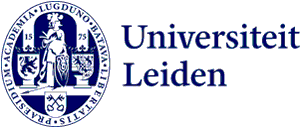Conference
Closing the Gap 2023 | Emerging and Disruptive Digital Technologies: Regional Perspectives
- Date
- Wednesday 6 December 2023 - Thursday 7 December 2023
- Address
- Glazen Zaal (Prinsessegracht 26), The Hague
Registration
The conference is fully subscribed at the moment. If you would like to join the waitlist, please send a message to closingthegap@fgga.leidenuniv.nl If at any point you cannot attend anymore/would like to cancel, please inform us by sending an email to closingthegap@fgga.leidenuniv.nl
Send us a messageThe EU Cyber Diplomacy Initiative – EU Cyber Direct – is partnering with the Dutch Ministry of Foreign Affairs and joining forces with research institutions and civil society organisations around the world to organize the third edition of the Closing the Gap Conference. This two-day, in person, conference aims to explore regional perspectives on emerging and disruptive digital technologies.
Program
Day 1 (Wednesday 6 December 2023)
| 08:30-09:00 | Welcome and Registration |
| 09:00-09:10 | Conference Opening by Dennis Broeders (Full Professor of Global Security and Technology, Institute of Security and Global Affairs, Leiden University, the Netherlands) |
| 09:10-09:30 | Welcoming and Opening Remarks by Ernst Noorman (Ambassador at Large for Cyber Affairs, Kingdom of the Netherlands) |
| 09:30-10:30 |
Roundtable - The international techno-politics of AI: Balancing the narratives of existential threat, trustworthiness, risk management, to meaningful human control
Chair: Raluca Csernatoni (Fellow, Carnegie Europe, Belgium)
Speakers:
|
| 10:30-11:00 | Coffee break |
| 11:00-13:00 |
Panel 1 - Regulating new and emerging technologies
Chair: Tal Mimran (Adjunct Lecturer, Hebrew University of Jerusalem, Israel)
|
| 13:00-14:00 | Lunch |
| 14:00-15:30 |
Panel 2 - The impact of artificial intelligence
Chair: Raluca Csernatoni (Fellow, Carnegie Europe, Belgium)
|
| 15:30-16:00 | Coffee break |
| 16:00-18:00 |
Panel 3 - Policy meets technology: national perspectives
Chair: Dennis Broeders (Full Professor of Global Security and Technology, Institute of Security and Global Affairs, Leiden University, the Netherlands)
|
| 18:00 | End of Day 1 |
Day 2 (Thursday 7 December 2023)
| 08:30-09:00 | Welcome and Registration |
| 09:00-10:30 |
Panel 4 - The impact of quantum technology
Chair: Chantal Lavallee (Royal Military College of Saint-Jean, Canada)
|
| 10:30-11:00 | Coffee break |
| 11:00-12:00 |
Panel 5 - Governing lethal autonomous weapon systems
Chair: Margaret E. Kosal (Associate Professor, Georgia Tech, USA)
|
| 12:00-13:00 |
Roundtable - Bridging the gap between technology and policy: the value and skills of the knowledge translator
Chair: Patryk Pawlak (Visiting Fellow, European University Institute, Italy)
Speakers:
|
| 13:00-13:10 | Closing Remarks by Dennis Broeders (Full Professor of Global Security and Technology, Institute of Security and Global Affairs, Leiden University, the Netherlands) |
| 13:10-14:00 | Lunch |
| 14:00 | End of Day 2 |
Background
The motivation for this thematic focus is threefold:
- To de-center approaches to emerging and disruptive digital technologies that have largely been Western/European centric
- To explore the diversity of interpretations regarding associated challenges and opportunities
- To enrich the state of the art with novel research ideas, theoretical insights, and empirical case studies
In 2021, the sixth United Nations Group of Governmental Experts focusing on ICTs in international security explicitly mentioned emerging technologies in its consensus report for the first time. In doing so, the report stated that “new and emerging technologies are expanding development opportunities,” whilst noting that they “may also have important human rights and ICT security implications.” Taking this acknowledgement as its point of departure, and recognizing that these technologies and their associated risks, opportunities, controversies and threats may differ across geographies, the 2023 Closing the Gap Conference will explore regional interpretations of what is and can be considered emergent and disruptive digital technologies. Contributors are invited to consider a broad range of digital technologies such as (but not limited to) mobile, fintech, AI, quantum computing, 5G, IoT, biometrics, and blockchain, in both the military and civil spheres.
In keeping the thematic focus broad, the conference aims to bring to the fore a variety of perspectives, ideas, and mechanisms from different disciplines to inform policymakers, cyber diplomats and academics, as well as contribute to evidence-based policymaking. Scholars are welcomed from fields as diverse as international relations, security studies, political science, law, behavioural science, computer science, science and technology studies, sociology, and communication studies. The conference is aimed at both emerging and established academics, think tankers and researchers, and early career researchers are highly encouraged to apply.
Goals
The conference has three primary objectives:
- Forging collaboration between scholars and practitioners to produce evidence-based policymaking and policy-relevant research;
- Encouraging productive exchanges between different generations of scholars (emerging and established researchers), sectors (government, private sector, academia, NGOs) and regions (Global South-North);
- Fostering interdisciplinary approaches and encouraging discussions between disciplines
Selection Committee
- Luca Belli, Fundação Getulio Vargas Law School / CyberBRICS
- Dennis Broeders, The Hague Program on International Cyber Security / Leiden University
- Fréderick Douzet, University of Paris 8 / GÉODE
- Maria Lorena Florez Rojas, University of Groningen
- Caitríona Heinl, University College Dublin
- Margaret E. Kosal, Georgia Tech
- Chantal Lavallee, Royal Military College of St-Jean
- Lu Chuanying, Shanghai Institute for International Studies
- Bruno Oliveira Martins, PRIO
- Tal Mimran, Hebrew University of Jersusalem
- Patryk Pawlak
- Nanjira Sambuli, Carnegie
- Elke Schwarz, Queen Mary University of London
Tentative Timeline
|
|
|
|
|
|
|
|
|
|
15 October 2023: |
Deadline for submission of draft papers |
|
20 November 2023: |
Feedback from review committee of papers |
|
6-7 December 2023: |
Closing the Gap 2023 conference |
|
29 February 2024: |
Deadline for revised/final papers |
|
Summer 2024: |
Publication of the edited volume |
We are fully subscribed - if you are interested, please send us a message to join the waitlist.
